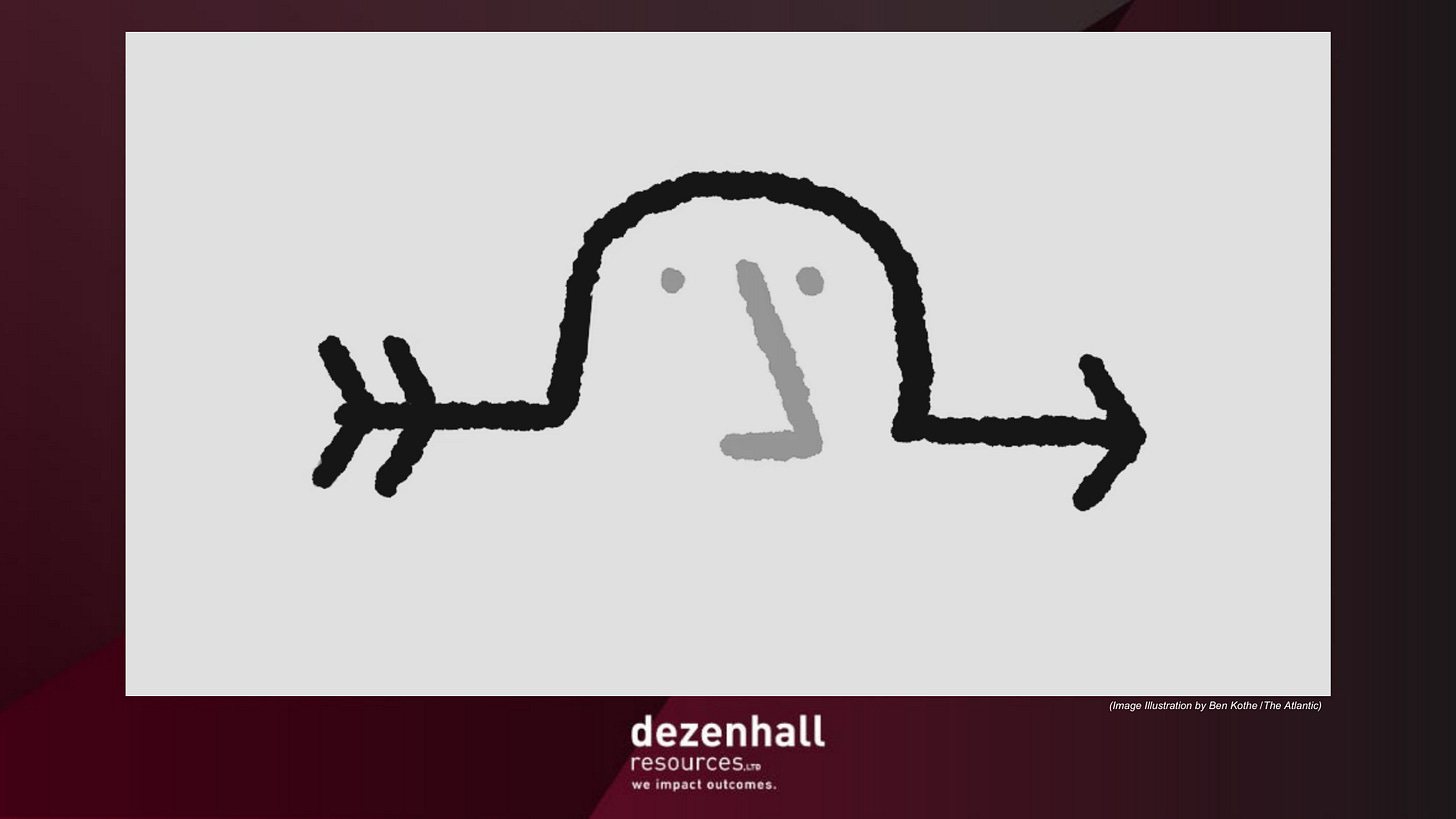Dez Reads. The Importance of Trash Talk, Dimon Stays Winning, ScarJo’s Voice, Vivek’s Media Gambit and More.
I grew up talking trash to the point that newcomers to my friend group wondered if we secretly hated each other. David Shoemaker’s new book, Wisecracks, suggests that our close-knit group relied on insults and banter to bind us together. The Atlantic’s review leads Dez Reads this week.
Beyond that, Anne Marie Malecha looks at the reputational and litigation implications of ScarJo’s fight with Sam Altman and OpenAI, Mike Bova examines Jamie Dimon’s latest win in DC, Mark Emerson muses about the looming end of the best live sports show left on TV, and I wonder what Vivek will do with his small activist stake in BuzzFeed.
We at Dezenhall would also like to take a minute this week to thank our veterans and active-duty military this Memorial Day weekend. Here’s hoping our readers take time with family to reflect on the sacrifices so many have made for our country.
Here we go.
Culture.
The Atlantic. Making Fun of Your Friends is Good for Them (And You)
This is the best news I’ve read all week.
In his new book, Wisecracks: Humor and Morality in Everyday Life, David Shoemaker essentially argues that making fun of your friends to their face is morally and ethically good. It destigmatizes the shortcomings and failures of our loved ones while allowing us to throw an arm around our buddies and laugh at each other’s expense.
In Maumee, Ohio, where I grew up, talking trash is our official love language. Just ask poor Sean Halpin about losing half his ring finger as a kid, and what that meant about his ability to trace his hand and draw a Thanksgiving turkey in fourth grade.
The book promises to give a window into the offline life we once cherished, in which blunt, even off-color humor is a tool that binds us, rather than divides.
– Josh Culling
Legal.
Axios. Scarlett Johansson says lawyers got OpenAI to shut down “Her” voice
In 2013, Scarlett Johansson played an AI assistant in the movie “Her.” Ten years later, ScarJo is in dispute with OpenAI over “Sky,” one of their ChatGPT voices that sounds eerily similar to, well, her/Her. Last September, Johansson turned down an offer from Sam Altman, OpenAI’s CEO, to use her voice for ChatGPT 4.O. But when OpenAI recently debuted the new product, Sky sounded oddly familiar.
OpenAI is “working to pause” Sky after Johansson’s lawyers demanded the company “detail the exact process” used to develop the voice, and for now her/Her voice is on the shelf. The company’s explanation that it’s another actor in their speaking voice seems like a stretch.
While the policy wonk in me is interested in how AI is regulated, the crisis manager in me is more interested in this new frontier on the legal and reputational fronts. Celebrities’ reputations are meticulously curated, and protecting their brands is paramount to their commercial success. Johansson and OpenAI are just the beginning. AI-driven name and likeness work will be a growing problem for public figures and therefore a burgeoning line of work for lawyers and flacks alike.
– Anne Marie Malecha
Media.
Fast Company. Vivek Ramaswamy spent $3.3 million to buy 8% of BuzzFeed. How much damage could he do with that stake?
This one intrigues me quite a bit. As an Old Millennial, I was once the target demographic for BuzzFeed, and watched closely as the company briefly built a successful (albeit often controversial) news vertical that won a Pulitzer Prize less than a decade after its founding. Facing falling traffic and revenue alongside a plummet in share price, BuzzFeed has since shuttered the news side of the business.
Vivek is following a well-trodden path: Identify a distressed asset with promise, take an activist position and attempt to steer the company in a different direction with new ideas. It is, however, notable that an outspoken conservative is interested in a liberal news site. Despite many commentators’ opinions, I’m not sure the market is clamoring for another Daily Wire, but perhaps a middle of the road CNN for the digital era. The key problem with embarking on such a strategy (besides the fact that Vivek currently has less than two percent voting power within the company) is that BuzzFeed’s brand has always been about generating social shares and conversation. Middle of the road news doesn’t lend itself well to that strategy.
– Josh Culling
Regulatory.
WSJ. Dimon Led Bank CEOs to Fend Off Tougher Capital Rules
Jamie Dimon continued to show his political prowess this week as the Fed and two other federal regulators are walking back a proposed 20% increase in capital requirements for the biggest U.S. banks. Observers see this as a significant win and turning point for big banks, marking the first potential shift in the balance of power from regulators since 2008. Last fall in Washington D.C., Dimon’s strategy became evident as he reportedly directed sector CEOs to bypass Michael Barr, the central bank's vice chair for banking supervision, and instead persuade other Fed governors, especially Chair Jerome Powell, to modify the proposed capital rules.
It's not too surprising that the head of one of the world's largest banks got what he wanted, but a few key observations helped:
Dimon outlined an effective strategy with a clear objective, a significant challenge when coordinating with a large group of industry participants, especially if a trade organization is involved.
Beyond his success in finance, he has established himself as a thought leader through his balanced, apolitical analysis, earning him a level of credibility and political capital that distinguishes him from other self-interested business leaders.
He leverages a powerful communication tool—his annual shareholder letter, which is widely followed by the media—to express his strong objections to increased capital requirements and their potential impacts on both the industry and the broader economy.
– Mike Bova
Sports.
The Athletic. Charles Barkley on TNT potentially losing NBA rights: ‘Morale sucks, plain and simple’
Charles Barkley has been outspoken (no surprise there) about the grim future of TNT's NBA coverage. With the possibility of losing these rights, TNT's iconic "Inside the NBA" show could end after a remarkable 35-year run.
During a candid appearance on "The Dan Patrick Show," Barkley criticized Turner Sports' strategic decisions, expressing a lack of morale, frustration and astonishment. He particularly questioned the network's choice to invest in College Football Playoff games rather than securing NBA rights. This decision, he views as a significant misstep that suggests TNT has grossly undervalued a cornerstone like the NBA, which has long defined its sports broadcasting identity.
With NBC currently favored to secure the NBA's television rights, Barkley fears the potential end of "Inside the NBA,” widely regarded as the Mount Rushmore of live shows in sports entertainment.
The natural chemistry and humor between hosts Charles Barkley, Ernie Johnson, Kenny Smith, and Shaquille O'Neal have made the show a must-watch, even for casual viewers. If TNT fails to retain the NBA rights, it would be a catastrophic loss for the network and viewers who have come to appreciate what is arguably the best live show on television.
– Mark Emerson










